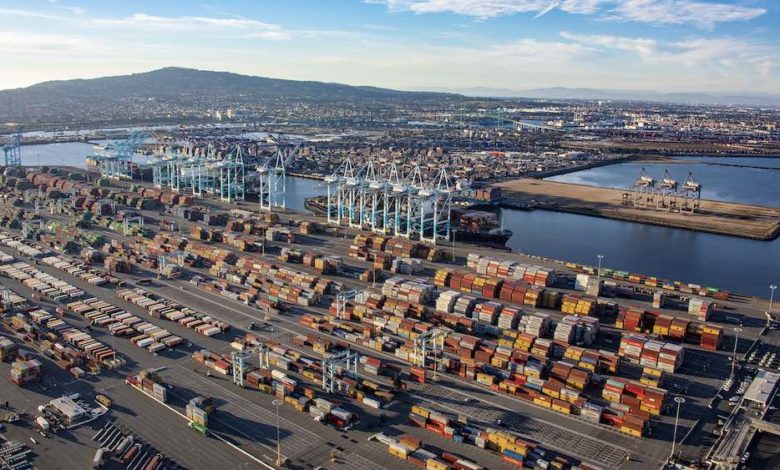Los Angeles terminal operator transitions container handling equipment to renewable diesel fuel

Fenix Marine Services, a container terminal at the Port of Los Angeles that handles about 2m teu a year, has transitioned its entire fleet of more than 300 pieces of container-handling equipment, as well as some support vehicles, from fossil-based diesel fuel to renewable diesel fuel, a blend made 80% of recycled organic oils and animal fats, and 20% of biomass.
Using this blend, known as RD80, Fenix has been able to immediately and significantly reduce its harmful emissions while also minimizing its costs and the time required for such a transformation.
“Renewable diesel is an advanced biofuel, meaning it [provides] greater than 50% lifecycle greenhouse gas (GHG) emissions-reduction relative to petroleum-derived diesel,” says Robert McCormick, senior research fellow for the National Renewable Energy Laboratory (NREL).
Further, “As long as we grow soybeans and produce livestock, the waste derived after these products have been processed into food can be refined into a clean, low-carbon fuel,” said Allen Schaeffer, executive director of the Diesel Technology Forum.
Having the same chemical structure as petroleum diesel, renewable diesel can simply replace conventional diesel in vehicles and machinery that are designed for that fuel. The change does not require equipment modifications or cause performance issues, according to Schaeffer.
Fenix has secured a long-term commitment to supply its total fuel demand with renewable diesel. The terminal has made this commitment before required transitions to other low or near-zero emissions options planned over the next decade.
“Future technologies for low or zero-emissions equipment are still under development,” says Sean Pierce, President and CEO of Fenix. “Renewable diesel allows Fenix to grow responsibly while continuing innovation partnerships for new electric and hydrogen technologies.”
The Port of Los Angeles has also commenced a 12-month project to reduce air pollution utilising hydrogen-powered fuel cell electric vehicles (FCEV) as well as two hydrogen fuelling stations.
Under the $82.5m Shore-to-Store (S2S) project, public and private sector partners will be demonstrating zero-emission Class 8 trucks in a heavy-duty setting. It also includes an additional five hydrogen-fuelled heavy-duty trucks, two battery-electric yard tractors, and two battery-electric forklifts.
Planning for S2S began in 2018. This project is one of 16 demonstrations underway at the port to accelerate near-zero and zero-emissions solutions for moving cargo.
The California Air Resources Board (CARB) is supporting S2S with a matching grant of $41.1m. Project partners, who include Toyota and Shell, are contributing the remaining $41.4m in financial and in-kind support.
Gas and technology group Air Liquide is the main hydrogen fuel supplier.
